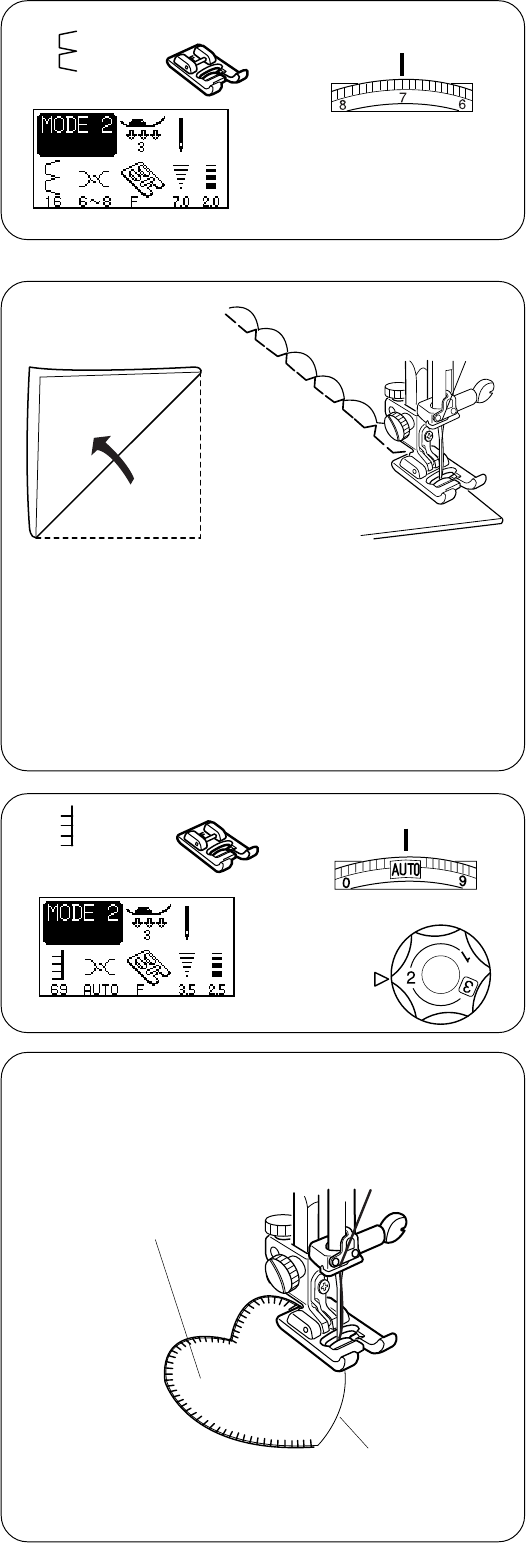
58
Use a light weight fabric (tricot, for example). Fold the
fabric as shown and stitch on the fold. Allow the
needle to just clear the folded edge to create a
shelled edge. You may need to increase the needle
thread tension slightly.
If you sew rows of shell stitches, space the rows at
least 5/8˝ (1.5 cm) apart. You can also sew shell
stitches on knits or soft silky woven fabrics, in any
direction.
Applique, a technique for stitching fabric shapes onto
another fabric, opens limitless design possibilities.
Dimension and texture can be added by lightly stuffing all
or part of design.
This machine has several different patterns that can be
used to enhance your applique.
q Applique piece
w Edge of the applique
In this type of applique, raw edges are folded under. First
cut the applique design out of card board. Next, place the
cardboard design on the fabric. Then cut the fabric slightly
larger than the cardboard. Fold the fabric raw edge around
the cardboard and press to form a perfectly shaped design.
Remove the cardboard. Tape or pin the applique in place
and sew, using the slit on the satin stitch foot as a guide
next to the folded edge of the applique.
16
69
qw
e
Shell tuck
Machine settings
q Pattern: 16 (mode 2)
w Presser foot: Satin stitch foot F
e Thread tension: 6–8
Applique
Machine settings
q Pattern: 69 (mode 2)
w Presser foot: Satin stitch foot F
e Thread tension: AUTO
r Foot pressure dial: 2
qw
e
q
w


















